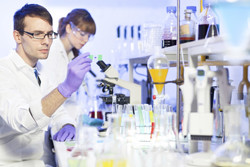Better science research and innovation
Mass media plays an important role in disseminating the latest in research and innovation. It helps to engage society in debate, focus on the more important challenges of our time and enlighten the public. The second edition of the EU-funded project 'European Intersectoral Summit on Research and Innovation' (EISRI II) explored the role of the media in responsible research and innovation. Designed to foster intersectoral and interdisciplinary discussions among leading stakeholders, the project encouraged professional networks, knowledge sharing and exchange of best practices on the topic. It organised a conference that brought together over 250 delegates from research, business, media, government and academia to investigate the relationship between science and society. The event presented over 50 key speakers including government representatives from European institutions, former heads of state, high-level business people, knowledgeable researchers and notable media stakeholders. Among the conference's key achievements was the launch of a pilot project — 'Special Initiative for Citizen Engagement in Science' (SPICES) — that brought the voice of citizens to European media outlets. The initiative helped 50 000 Europeans to express their concerns and opinions through questionnaires on topics such as science education, ethics, open access and gender. The outcomes were transmitted to the European Commission to support EU-funded project calls under the EU's Horizon 2020 framework programme, as part of engaging citizens in 'inclusive, innovative and secure societies'. Overall, in furthering responsible research and innovation, the project engaged society in research and innovation, helping to influence governance as well. It also promoted free access to publicly funded scientific knowledge and assessed the role of the media for research and innovation in different key areas. This is important as the range of media affects most aspects of modern life, playing a pivotal role in shaping social and cultural processes and choices. In this context, the project team probed different questions such as how new means of communication increase public trust and how media can be used constructively and interactively. It particularly looked at how traditional media can enhance dialogue between the public and policymakers using new media tools, guaranteeing the authoritativeness and reliability of scientific information. A more scientifically and engaged society will certainly help it anticipate the future more readily and contribute to the knowledge economy in Europe.



